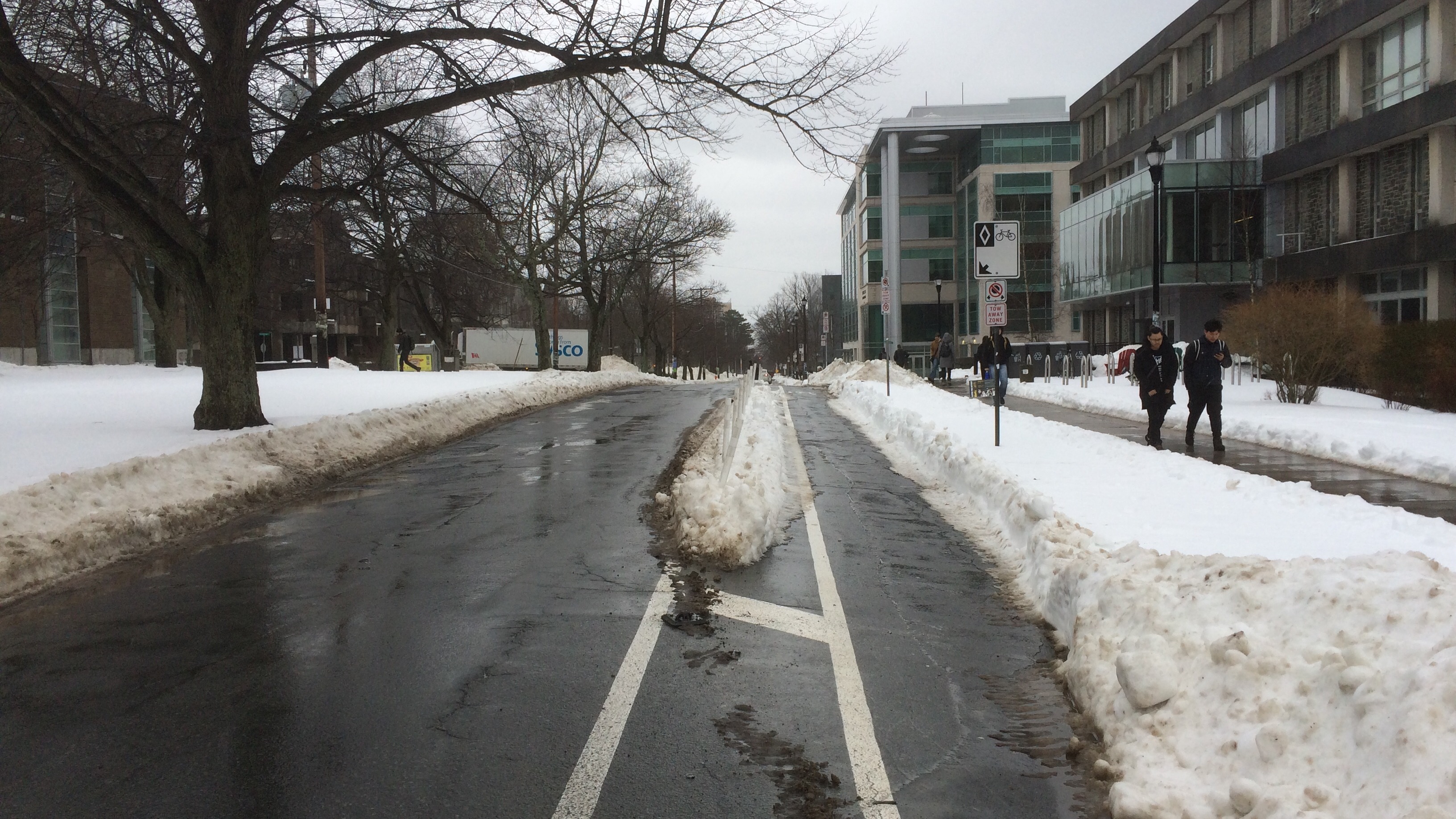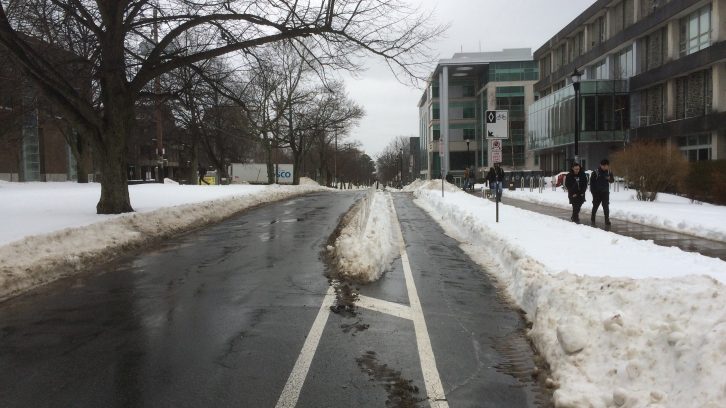Transportation
With zero vehicle-pedestrian deaths in 2016, are Halifax roads safer?
Even though Halifax hasn’t seen a fatality in over a year, pedestrians are still struck by vehicles on a regular basis

caption
The bike lane on University Avenue is one of only two protected lanes in Halifax. The barriers and widened lines between bicycle and vehicle lanes increase safety.
caption
The bike lane on University Avenue is one of only two protected lanes in Halifax. The barriers and widened lines between bicycle and vehicle lanes increase safety.People might be walking — or bicycling — a little easier these days. In 2016, there were no deaths recorded in collisions between motor vehicles and pedestrians or cyclists.
Kelsey Lane, the executive director of the Halifax Cycling Coalition, says this is the “first time” she can remember this happening.
But is it enough?
It is only two weeks into 2017 and the Halifax Regional Police (HRP) have already reported six cases of pedestrians being struck by vehicles.
According to HRP documents, the total number of these types of collisions has fluctuated between 2012 and 2015. The highest number of incidents was recorded in 2014 when 262 of these collisions happened.
Then, in 2016, there were 238 vehicle-pedestrian/bicycle collisions in the first 11 months alone. The numbers for this past December were not yet reflected in the report.
“I think it’s important to pay attention to the impact that a collision can have,” says Lane. “It will significantly impact that person’s life going forward.”
Gillian Clark was a pedestrian involved in a motor vehicle collision six years ago.
Clark spent three-and-a-half months in hospital as a result of the accident and walked with a cane for six to eight months after. She still has regular appointments and checkups to this day.
Clark eventually turned her recovery into art. She wrote and starred in a one-woman show titled Let’s Try This Standing. The play, which shares her experience through monologue, was featured at Neptune Theatre a year ago.
“I got to a new place,” she says, but adds that “even now I’m still dealing with things.”
Not everyone involved in motor vehicle accidents and collisions can work through them as Clark did. For many, it means they’re unable to work.
“For example, if you have a back injury or a fracture, you’re not able to go into work for a few months because you had a bad collision,” says Clark. “That’s not necessarily weighted in a document that you see online.”
Lane wants to see Halifax commit to an initiative called “Vision Zero,” and promise to aim for no deaths or serious injuries on the roads. The initiative began in Sweden with a 1994 road traffic safety bill. The country hosts a website containing stories of strategies and success from around the world to create safer infrastructure and vehicle design. Vision Zero has been officially adopted in many places around the world, including New York City and Edmonton. Similar goals have also been pledged in Vancouver.
“We are really pleased to see that there aren’t any fatalities this year,” says Lane. “But I don’t know if we can quite say that that will be the trend in the future.”

